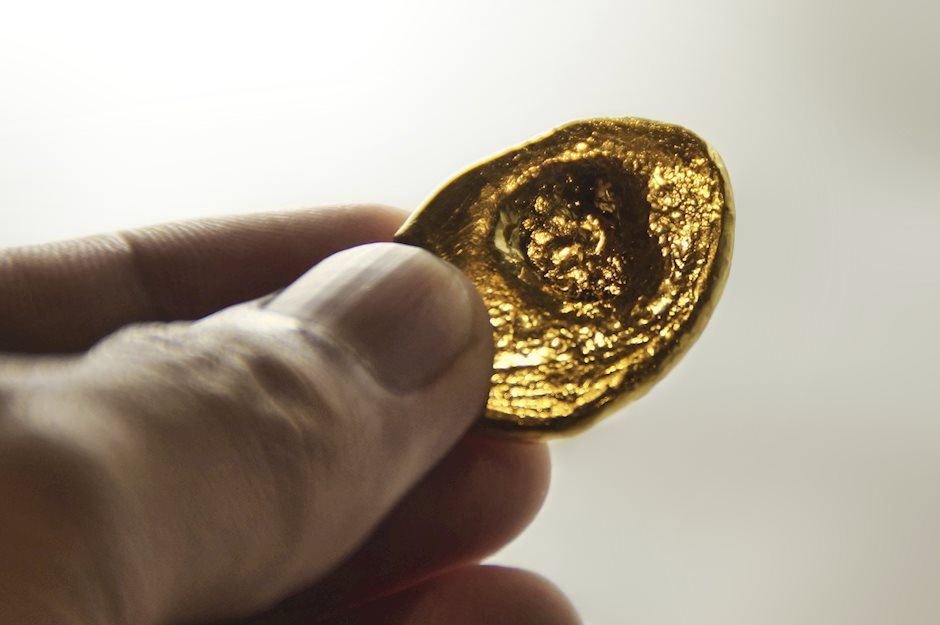India Gold price Thursday: Gold recovers, according to MCX data

Most recent article: India Gold price today: Gold rises, according to MCX data
Gold prices rose in India on Thursday, according to data from India's Multi Commodity Exchange (MCX).
Gold price stood at 62,709 Indian Rupees (INR) per 10 grams, up INR 191 compared with the INR 62,518 it cost on Wednesday.
As for futures contracts, Gold prices decreased to INR 62,600 per 10 gms from INR 63,735 per 10 gms.
Prices for Silver futures contracts decreased to INR 71,538 per kg from INR 72,247 per kg.
| Major Indian city | Gold Price |
|---|---|
| Ahmedabad | 64,965 |
| Mumbai | 64,585 |
| New Delhi | 64,855 |
| Chennai | 64,760 |
| Kolkata | 64,855 |
Global Market Movers: Comex Gold price struggles as USD hits fresh YTD peak
- The Federal Reserve signalled on Wednesday that it was getting closer to rate cuts, dragging the US Treasury bond yields lower, which, in turn, is seen as a key factor lending support to the Comex Gold price.
- As was expected, the Fed decided to leave the main interest-rate target unchanged at between 5.25%-5.5% at the end of a two-day meeting on Wednesday and indicated that the policy rate is likely at its peak.
- In the post-meeting press conference, Fed Chair Jerome Powell said that rate cuts would likely begin at some point this year, though pushed back strongly against expectations for any such move in March.
- The current market pricing indicates only about a 35% chance that the US central bank will cut interest rates in March, down from more than 60% before the Fed decision and nearly 90% a month ago.
- The less dovish outlook assists the US Dollar to climb to a fresh YTD peak, prompting some intraday selling around the non-yielding yellow metal and dragging it to the lower end of its daily trading range.
- Investors remain worried that the deepening conflict in the Middle East could trigger a wider war, which, along with slowing economic growth in China, lends support to the safe-haven precious metal.
- The European Union hopes to launch a naval mission in the Red Sea within three weeks to help defend cargo ships against attacks by Houthi rebels, which are hampering trade and driving up prices.
- A private-sector survey released earlier this Thursday showed that business activity in China's manufacturing sector expanded at a steady pace for the third successive month in January.
- Traders look to the flash Eurozone consumer inflation figures, the Bank of England policy decision and the US ISM Manufacturing PMI for some impetus ahead of the US NFP on Friday.
(An automation tool was used in creating this post.)
Gold FAQs
Why do people invest in Gold?
Gold has played a key role in human’s history as it has been widely used as a store of value and medium of exchange. Currently, apart from its shine and usage for jewelry, the precious metal is widely seen as a safe-haven asset, meaning that it is considered a good investment during turbulent times. Gold is also widely seen as a hedge against inflation and against depreciating currencies as it doesn’t rely on any specific issuer or government.
Who buys the most Gold?
Central banks are the biggest Gold holders. In their aim to support their currencies in turbulent times, central banks tend to diversify their reserves and buy Gold to improve the perceived strength of the economy and the currency. High Gold reserves can be a source of trust for a country’s solvency. Central banks added 1,136 tonnes of Gold worth around $70 billion to their reserves in 2022, according to data from the World Gold Council. This is the highest yearly purchase since records began. Central banks from emerging economies such as China, India and Turkey are quickly increasing their Gold reserves.
How is Gold correlated with other assets?
Gold has an inverse correlation with the US Dollar and US Treasuries, which are both major reserve and safe-haven assets. When the Dollar depreciates, Gold tends to rise, enabling investors and central banks to diversify their assets in turbulent times. Gold is also inversely correlated with risk assets. A rally in the stock market tends to weaken Gold price, while sell-offs in riskier markets tend to favor the precious metal.
What does the price of Gold depend on?
The price can move due to a wide range of factors. Geopolitical instability or fears of a deep recession can quickly make Gold price escalate due to its safe-haven status. As a yield-less asset, Gold tends to rise with lower interest rates, while higher cost of money usually weighs down on the yellow metal. Still, most moves depend on how the US Dollar (USD) behaves as the asset is priced in dollars (XAU/USD). A strong Dollar tends to keep the price of Gold controlled, whereas a weaker Dollar is likely to push Gold prices up.
Author

Dhwani Mehta
FXStreet
Residing in Mumbai (India), Dhwani is a Senior Analyst and Manager of the Asian session at FXStreet. She has over 10 years of experience in analyzing and covering the global financial markets, with specialization in Forex and commodities markets.

















